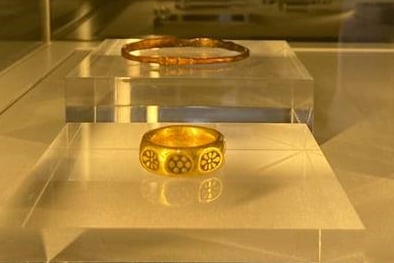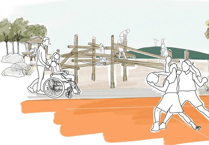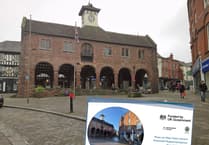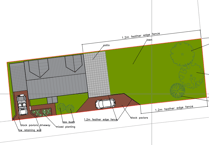THE new county museum and art gallery won’t now open until late 2026, according to Herefordshire Council which is overseeing the £18-million project in Hereford.
In response to a public question ahead of the council’s cabinet meeting today (May 16), Coun Harry Bramer (Penyard, Conservative), cabinet member for community services and assets said: “The museum and art gallery redevelopment is due to be complete in late 2026.
“A final opening date is subject to a number of factors and may change as the project progresses,” he added.
Hereford resident Mike Willmont said he put the question because “there appears to be little evidence of construction work in progress” at the historic Broad Street building.
He also asked: “Are there dates when the money from the Towns Fund, Arts Council and National Lottery Heritage Funds have to be returned if not spent?”
Coun Bramer replied simply: “The grants received from funders will be used in accordance with their approved purposes to support the redevelopment.”
With multiple funders including the council itself, the transformation of the city-centre building is the flagship project of the Stronger Hereford programme of improvements to the city.
A £750,000 Arts Council England grant for the project was confirmed earlier this month.
A council webpage about the project continues to say the new museum and art gallery “will open in 2025”. Elsewhere on its website it says that work “has continued behind the scenes” there this spring.
The full business case for the project submitted to the government’s Stronger Towns Fund in summer 2022 said the building’s reopening was “set for January 2025”.
It will be home to the ‘Herefordshire Hoard’, one of the most significant early medieval treasure finds in Britain.
Recently loaned to York’s Jorvik Viking Centre, it was discovered near Leominster by two detectorists who later served jail terms for trying to illegally sell items.

The hoard includes a gold arm bangle with beast head clasp, a pendant made from a sphere of rock crystal mounted in gold, a gold octagonal ring with black inlay and 29 rare coins mostly of Alfred the Great of Wessex and Ceolwulf II of Mercia.
It is thought to have been buried around 878, perhaps as part of a high-status Viking hoard.





Comments
This article has no comments yet. Be the first to leave a comment.